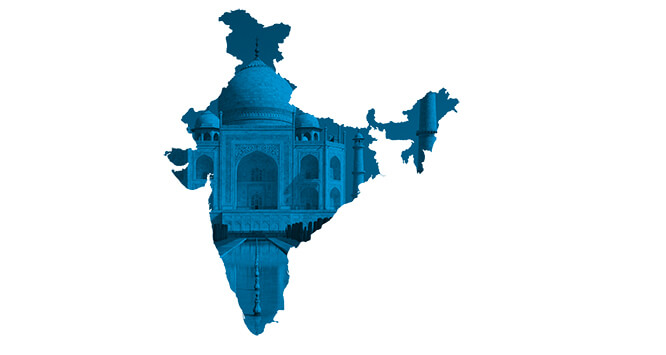Sabadell International Business
Export to India

Opportunities for Spanish company in India
Strong points
- Great market potential.
- Major growth in the services and ICT sectors.
- Good pace of reforms leading to a more modern and liberalised economy.
- High level of foreign currency reserves.
- Highly active private sector.
- From 1 July 2017 the Good and Services Tax (GST) came into force, to merge the many different taxes applied by each state, and creating a single uniform market all over India.
Weaknesses
- Public finances not in good shape.
- High rate of inflation and tax deficit.
- Social inequalities.
- Infrastructures not highly developed.
- Local bureaucracy.
Investments
Investment is enjoying significant growth in the:
- services sector.
- Industrial sector: chemical and metal industry. Spectacular growth of DFI (direct foreign investment) in the pharmaceutical sector.
Prospects
- India’s economy will continue to grow thanks to its high internal consumption, encouraged by the high purchasing power of its middle class.
- The sectors with potential are: infrastructures, capital goods, pharmaceutical industry, automotive, ICT and machinery, amongst others.
Banco Sabadell in India
Experience
Working here since 1994, Banco Sabadell is the first Spanish bank in India. Our customers can be sure that their businesses in India will get proactive, expert treatment. Our knowledge of the local financial system has meant that Banco Sabadell enjoys extensive recognition and respect among the country’s banks.
Services
- Entry onto the market and local banking.
- Advice on a wide range of financial products: export and import documentary credits, remittances of documents, collateral, guarantees, performance bonds, project pre- financing, risk hedging.
- transaction monitoring.
- Meeting between local Spanish companies, agents or customers of Spanish companies.
- Coordination of customers’ businesses.
Symposium on Destination India: a land of opportunities.
Click here to see the video
Business structure in India
Incorporating a foreign business
Representative / Liaison Office
Cannot obtain income in India. Can only promote the company’s products and look into future business opportunities.
Branch
Represents the parent company as the purchasing/selling agent. Can do business, but obtaining income will mean it has to pay tax in the country. Local law allows the following activities:
- Importing or exporting the parent company’s products.
- Carrying out survey work and providing technical and consultancy services. Production in the country is not allowed except in SEZ (Special Economic Zones).
Project Office
Makes it easier to perform a specific project:
- Requires the approval of the competent Government authority
Non-resident foreigners may open an account at a local bank if they have a visa with a work permit in India.
Incorporating an Indian business
Wholly-Owned Subsidiary:
100% of the capital is owned by the parent company:
- It can carry out and control all production and marketing processes
- Subject to local taxation and law
- Can freely repatriate capital and profits.
Joint venture
A common solution. The partner provides in-depth knowledge about the local market or a well-established network of contacts.
Payment methods in India
Collection
Exports to India
- Documentary Credit:
the safest method. Requires authorisation of the Reserve Bank of India. - Collection:
these are usually remittances with sight draft or payment - Advance payment:
only authorised companies can make these on condition that they meet certain requisites.
Payment
Imports from India
- Documentary Credit:
bank payment commitment. - Collection:
management of commercial paper
International negotiation protocol in India
- Be prepared for a intense price negotiations and allow a sufficient margin on the initial price.
- It is important to have a local partner or collaborator in the country
- Respect the hierarchy of the company and identify the suitable interlocutor.
- Take your time.
- The atmosphere must be formal and cordial, even when negotiating from a firm position
- Shaking the head from right to left does not indicate refusal but comprehension
- Do not expect to deal with business after a meal; this is not done.
- Bear in mind their cultural, religious and regional diversity
- Status is determined by age, qualifications, caste or profession.
- Avoid talking about religion or Pakistan.
Contact
India
Office Suite 1010
Corporate Edge, 10th. Floor, H.T. House
18-20 K.G. Marg,
110001 - New Delhi
Tel. (+91) 11 68137700
